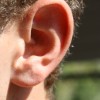The Dozing Brain
 Do you know people who swear that they can live on a few hours of sleep a night and be able to fully function the next day? Perhaps you’re one of these people. Well it seems that you really can’t “fully function” on less sleep.
Do you know people who swear that they can live on a few hours of sleep a night and be able to fully function the next day? Perhaps you’re one of these people. Well it seems that you really can’t “fully function” on less sleep.
Researchers at the University of Wisconsin- Madison conducted tests with rats that were kept up past their normal bedtime. The rats were given objects to play with to keep them awake. During play, electrodes were implanted in their brains to measure brain activity. The results were interesting.
It seems that sleep does not involve the whole brain at once. It was once believed that a central control system determined when the brain would sleep and then later when it would wake. However, due to new research, this doesn’t seem to be the case. It seems that individual cells make the decision to sleep which eventually spreads throughout the rest of the brain.
The rats that were “wide awake” and playing with their toys weren’t “wide awake’ at all! Parts of their brain were snoozing- as the electrodes showed. This means that even though the rats weren’t showing their sleepiness and weren’t nodding off, their brains were not working to their full potential.
The electrodes measured activity in two parts of the brain: the motor cortex and parietal cortex. The rats were given an activity that required them to reach through a plexiglass wall and grasp a sugar cube. The rats that had a napping motor cortex (the part of the brain that controls movement) failed to grasp the sugar cube after many mistakes. The rats that had a napping parietal cortex, however (which was not needed for the task) was able to complete it without any mistakes.
As to how this would apply to the human mind, this could mean that the loss of sleep can be even more dangerous than previously thought. Someone could feel awake enough for tasks without realizing that essential parts of the brain are dozing. This can lead to slips of the tongue, driving mistakes, errors of judgment or other problems. It makes us rethink sleep derivation and how it’s really affecting us.
Just another reason why getting the recommended amount of sleep is important!
| Print article | This entry was posted by Jennifer Aiello on August 8, 2011 at 10:48 am, and is filed under G2C Online. Follow any responses to this post through RSS 2.0. You can skip to the end and leave a response. Pinging is currently not allowed. |









